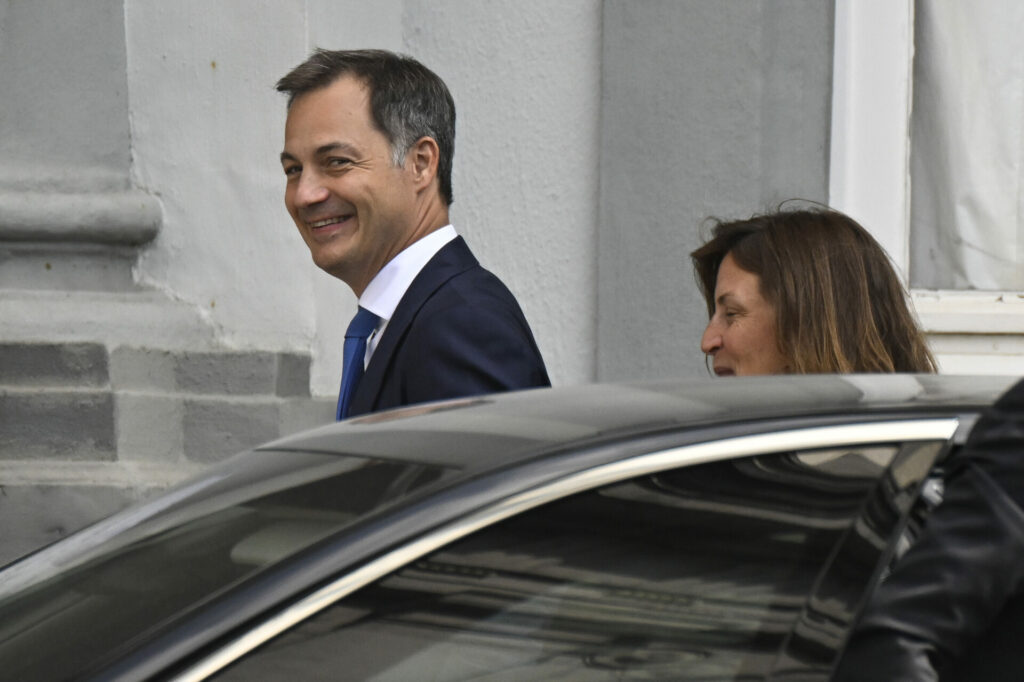The Consultative Committee has decided that Belgium's different governments will take a number of measures to protect consumers and businesses from the sky-high energy prices, Prime Minister Alexander De Croo announced during a press conference on Wednesday evening.
"There is only one reason for this press conference, and that is the fact that energy prices have risen in a frightening way that is no longer sustainable," said De Croo. "Everyone is asking the same questions: when will this stop and how can we get through this?"
"Let us be frank: there is no miracle solution. But all governments have been clear: we are going to pull out all the stops to get through this," he said. "But it is only at the European level that we can stop the bleeding."
Belgium has been arguing for this for a long time, De Croo stressed. "In the beginning, we had very few allies but we are convinced that this is the only solution to get out of the crisis. Our country will continue to work until all 27 countries are convinced."
Five elements to get through the crisis
The Consultative Committee discussed "five elements" to protect the population. "Of course, each government has its own competencies on which they can take action and specific measures are in the making."
Measures that are already in place – such as social tariffs, reducing excise duties on petrol and diesel, lowering VAT on electricity and gas to 6%, and financial compensation for heating oil – will be extended until the end of March 2023.
The different governments will also consult with Belgium's business federations to see how companies and SMEs can be supported as much as possible.
Consultations will be launched with the financial sector so that people get a reprieve on their mortgage repayments: "Today, we see that many people are in danger of getting into trouble on that front and there has been an offer from the banks to help these people again."
Additionally, banks will be consulted to see how they can do more for consumers, for example by supporting customers with problems paying energy bills or by assisting them with energy-saving renovations and/or insulation. This will allow people to install heat pumps, solar panels and other sustainable appliances. "People want to invest, but there are barriers. We need to make that possible."
Related News
- Belgium in Brief: The nuclear elephant in the room
- Neighbouring countries saving much more gas than Belgium
- Parliamentary Committee on Energy to meet in extra session on 13 September
"A fourth element is to reduce consumption," said De Croo. All governments have agreed to save energy themselves by switching off the lights between 19:00 and 06:00, setting heating at 19°C and air conditioning at a maximum of 27°C.
"We will also look with the private sector at how this can also be done in companies and shops. If everyone saves energy, it will be good for everyone's wallet and energy prices will also come down."
There will also be a tax on the excess profits of energy companies, with the aim of helping the population as much as possible with a solidarity fund. "There is already such a thing as the nuclear interest today, we will try to extend that to the other companies in the sector that are currently making excess profits."
Looking to nuclear?
Additionally, the government has also requested that the nuclear power plants Tihange 2 and Doel 3 remain open until 31 March 2023. Belgium can get through the winter with ease and if the winter is no more severe than normal, there will even be energy left over. "We can then make it available to other countries."
"It is clear that it will take a lot to get us through this crisis," De Croo said. "We are going to do everything we can. This is not going to solve all the problems, but we are going to do everything we can to protect people as much as possible."

